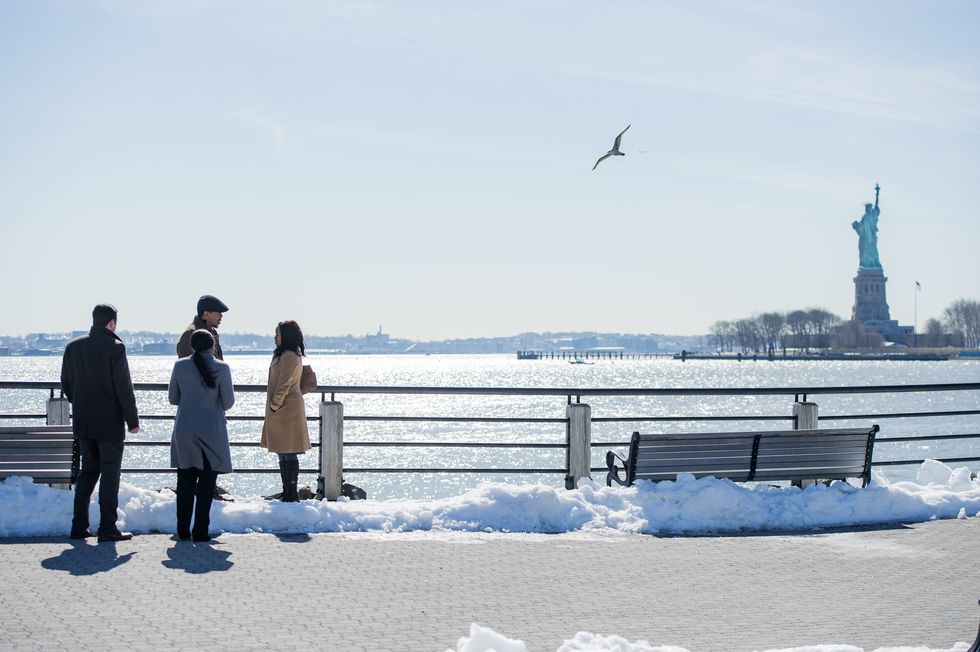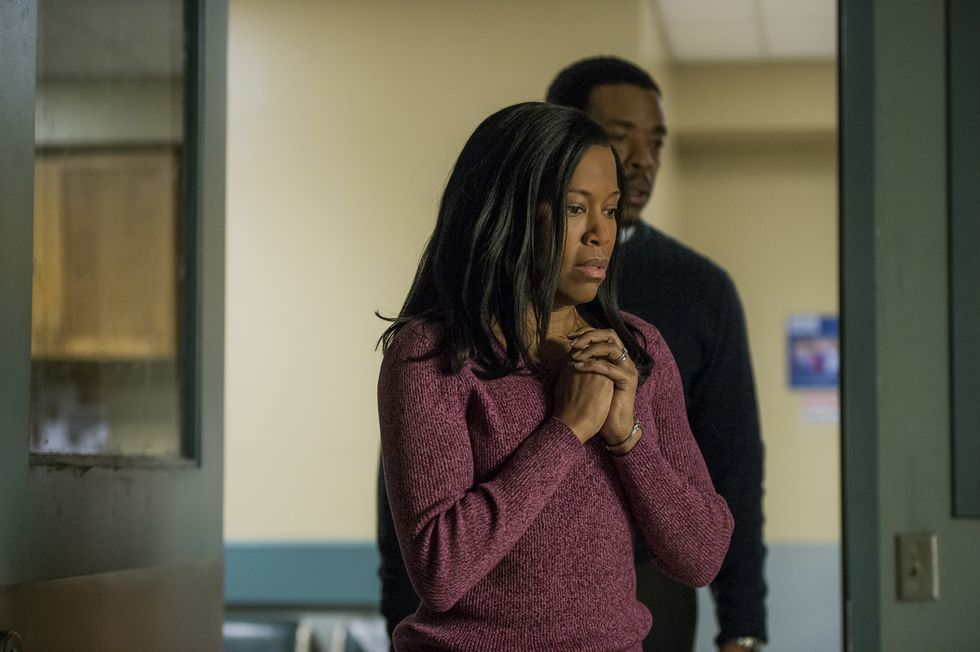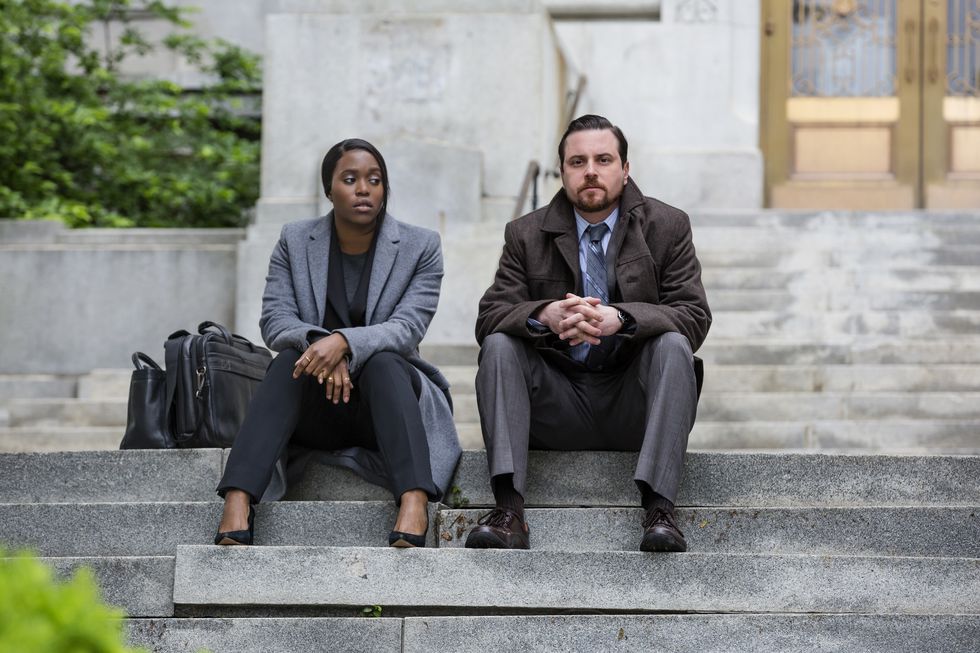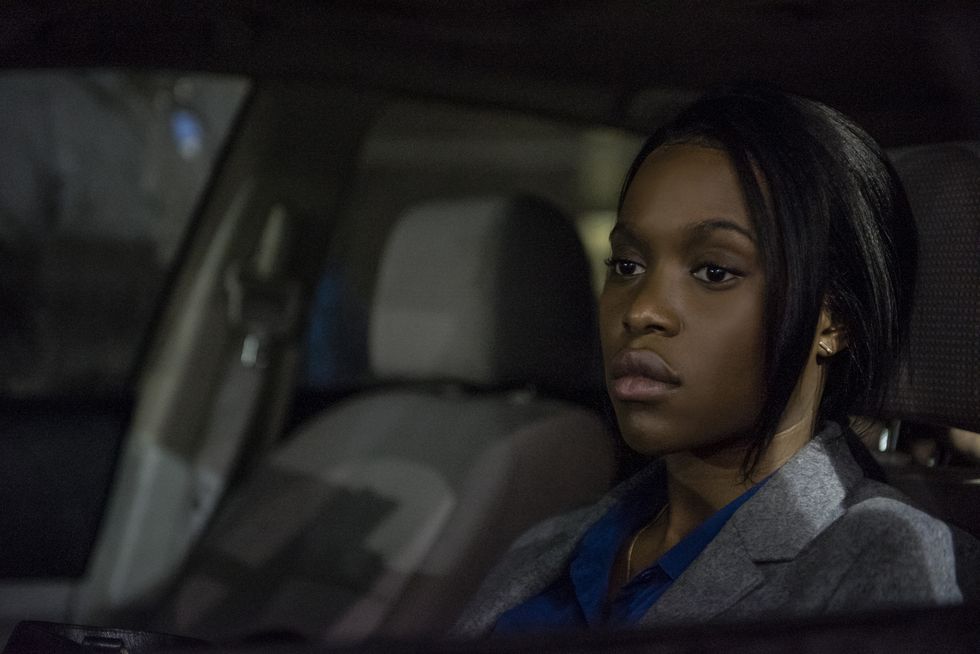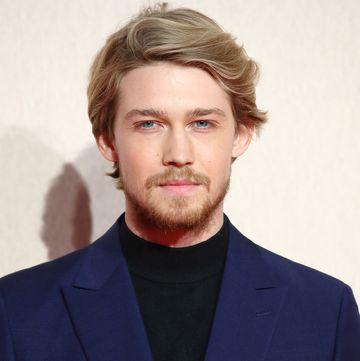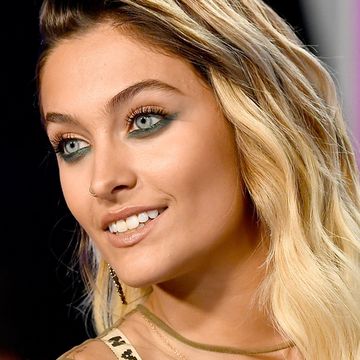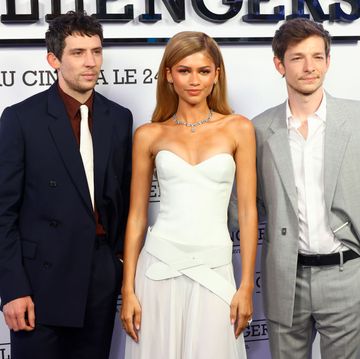We'll warn you now: Seven Seconds is not an easy watch. Opening with the accidental and bloody hit-and-run of a black child at the hands of a distracted white policeman, this show goes hard on the home truths.
At its core, it's a profound and thought-provoking piece of drama dealing with issues that couldn't be more prescient and timely in our Donald Trump era.
After rookie Jersey City police officer Peter Jablonski [played by actor Beau Knapp] knocks down teenager Brenton Butler, he panic calls his fellow police officers - including his supervisor - who collude to cover up the crime, leaving Brenton to die like an animal alone in a snow-covered ditch.
Part of the police's motivation is their belief that the incident will be twisted by the press and made to look as though it was racially motivated.
The bereaved family of the teenager - led by the brilliant US star Regina King as a mother in turmoil - are left struggling for a sliver of hope and any semblance of justice, despite facing a system which refuses to value black lives as much as white ones.
Instead, the Butler family are forced to defend their slain son's reputation: people question how Brenton could afford his BMX bike and whether his death was an outcome of gang warfare.
But a young, broken prosecutor named KJ - played by British actress Clare-Hope Ashitey - takes on the case and is determined to uncover the truth.
According to the National Association for the Advancement of Coloured People's Criminal Justice Fact Sheet, African Americans are incarcerated at more than five times the rate of white people, and the imprisonment rate for African American women is twice that of white women.
In 2014, African Americans constituted 2.3 million (34 per cent), of the total 6.8 million correctional population.
'In the US, there's a message that a black life is worth less,' Ashitey tells ELLE UK. 'I do think that's the case, and I think a lot of people, if they were honest with themselves, they would realise that, even if they don't want to.
'The US justice system is shocking and infuriating - it seems to so clearly work against certain people on the colour spectrum, and in such an unjust way that I'm amazed that there aren't more riots.'
'Certain people are not treated fairly, and that's a fact.'
In the show, KJ is subjected to racial profiling. White detective Joe Rinaldi [Michael Mosely] immediately assumes that because she is black she must come from sort of shameful or less respectable background.
But it's also something Ashitey herself regularly endures and fights against.
'Racism is still a problem in the US and in the UK - people make assumptions and it's infuriating for a character like KJ, and it's infuriating for someone like me,' the Doctor Foster star added.
'Those assumptions and stereotypes get into a system that makes even it harder for people to break out of them.'
Created by female writer and producer Veena Sud - who adapted The Killing in the US - the show also shines a light on gender inequality. This becomes evident when KJ admits her father gave her two initials for a name to prevent her from being discriminated against because of her sex.
'It made a lot of sense,' ruminates Ashitey. 'While it's better for women now, there's still a huge amount of sexism - people do make assumptions about you and your intelligence and capabilities as a woman.'
She continued: 'It's like "mansplaining" - that has become a popular term and for a good reason. I know a lot friends who "mansplain" and they don't even realise they are doing it.'
With complicated, flawed roles for actresses few and far between, it's exciting to see a series led by someone like KJ. She won't stop until she'd delivered justice for the family - despite her own struggles with alcohol and a proclivity for self-destruction.
'She's like a friend who is self-destructive,' Ashitey said of her character. 'It's really tough because you just want to shake her. But she has to make her own choices and make her own decisions.
'Even the idiotic things she does, it felt right, and it felt more interesting than playing someone who is perfect and flawless. That's what keeps you engaged with her, because she is feel real, and makes you stay engaged with the show.'
While Seven Seconds is heavy, and at times hard to digest, it's undeniable engaging and will resonate with viewers. Let's hope a series like this can lead the way for change or, at the very least, raise awareness of how much change there needs to come.
'Seven Seconds' is available to watch now on Netflix.

Naomi Gordon is news writer mainly covering entertainment news with a focus on celebrity interviews and television.
